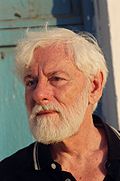DURING THE Spanish civil war of 1936, a news story reported the deaths of 82 Moroccans, 53 Italians, 48 Russians, 34 Germans, 17 Englishmen, 13 Americans and 8 Frenchmen. Also 1 Spaniard.
"Serves him right," people in Madrid commented, "Why did he interfere?"
Similar things could now be said about the civil war in Syria. Shiites from all over the Muslim world stream into Syria to help Bashar al-Assad's dictatorship to survive, while Sunnis from many countries hasten there to support the rebels.
The implications of this go well beyond the bloody Syrian struggle. It is a historic revolution, region-wide and perhaps world-wide.
AFTER WORD WAR I, the victorious colonial empires carved up the territories of the vanquished Ottoman Empire among themselves. Since colonialism was out and self-determination was in, their new colonies were dressed up as independent nations (like Iraq) or as nations-to-be (like Syria).
European-style nationalism took hold of the new Arab nations. The ancient idea of the pan-Muslim "Umma" was pushed away. The idea of a pan-Arab super-state, propagated by the Baath party and Egypt's Gamal Abd-al-Nasser, was tried and failed. Syrian nationalism, Iraqi nationalism, Egyptian nationalism and, of course, Palestinian nationalism won.
It was a doubtful victory. A typical Syrian nationalist in Damascus was also a part of the Arab region, of the Muslim world and of the Sunni community -- and the order of these diverse loyalties was never quite sorted out.
This was different in Europe, where the national loyalty was unchallenged. A modern German could also be a Bavarian and a Catholic, but he was first and foremost a German.
During the last decades, the victory of local nationalism in the Arab world seemed assured. After the short-lived United Arab Republic broke up in 1961 and Syrians proudly displayed their new Syrian passports, the future of the Arab nation-states looked rosy.
Not any more.
TO UNDERSTAND the immense significance of the present upheaval one has to go back in history.
Two thousand years ago, the modern idea of "nation" was unthinkable. The prevalent collective structure was the ethnic-religious community. One belonged to a community that was not territorially defined. A Jewish man in Alexandria could marry a Jewess in Babylon, but not the Hellenic or Christian woman next door.
Under Roman, Byzantine and Ottoman emperors, all these dozens of sects enjoyed a wide autonomy, ruled by imams, priests and rabbis. This is still partly the case in most former Ottoman territories, including Israel. The Turks called these self-governing sects "millets."
The German historian Oswald Spengler, in his monumental "The Decline of the West," asserted that great cultures were like human beings -- they are born, grow up and die of old age within a thousand years. Middle-Eastern culture, according to him, was born around 500 BC and died with the decay of the Muslim Caliphate. Judaism, which was born in the Babylonian exile around 500 BC, was just one sect among many.
Arnold Toynbee, the British historian who espoused a similar theory, claimed that today's Jews were a "fossil" of this obsolete culture.
What happened later was that European societies went through many stages, the latest being that of the "nation." In Europe, the Jews were a sinister and hated anomaly because they clung to their former existence as a homeland-less, dispersed ethno-religious sect. This was done quite consciously: the rabbis erected a "fence around the Torah," separating Jews from everybody else, making it impossible for them to eat with non-Jews or marry them. Jews originally congregated in ghettos because of their need for a Synagogue they could walk to on the Sabbath, public bath (Mikvah), etc.
(Note: You can view every article as one long page if you sign up as an Advocate Member, or higher).






